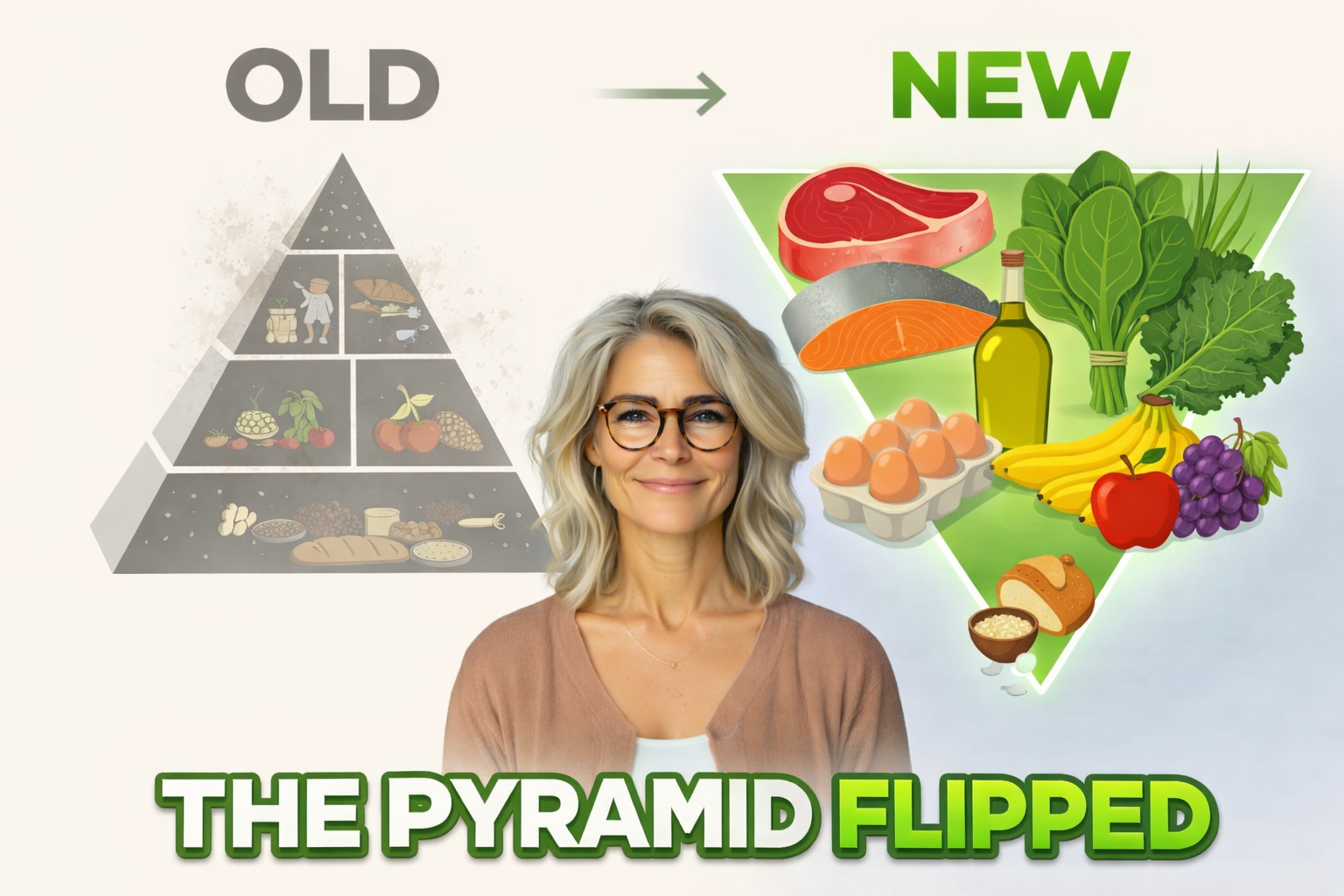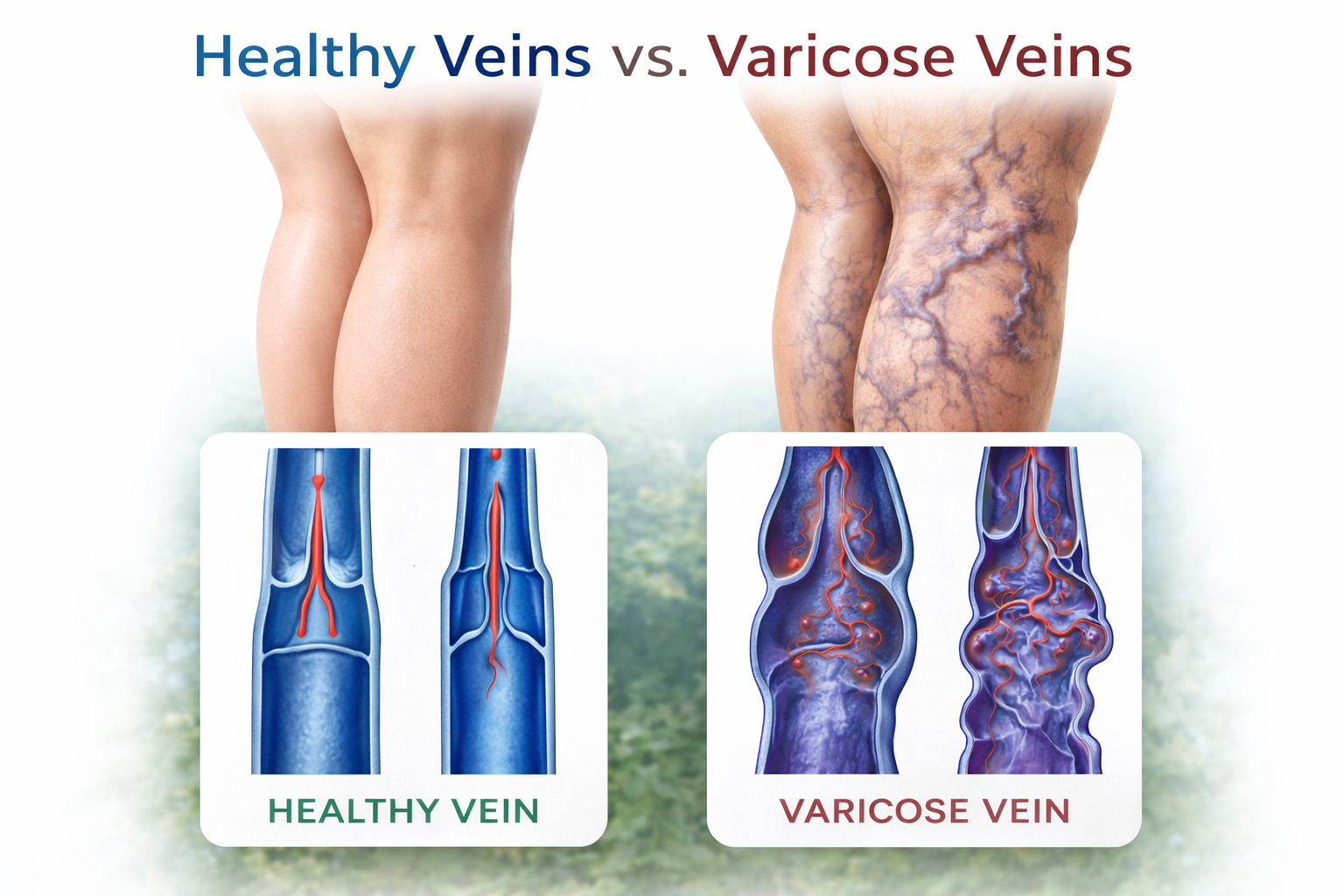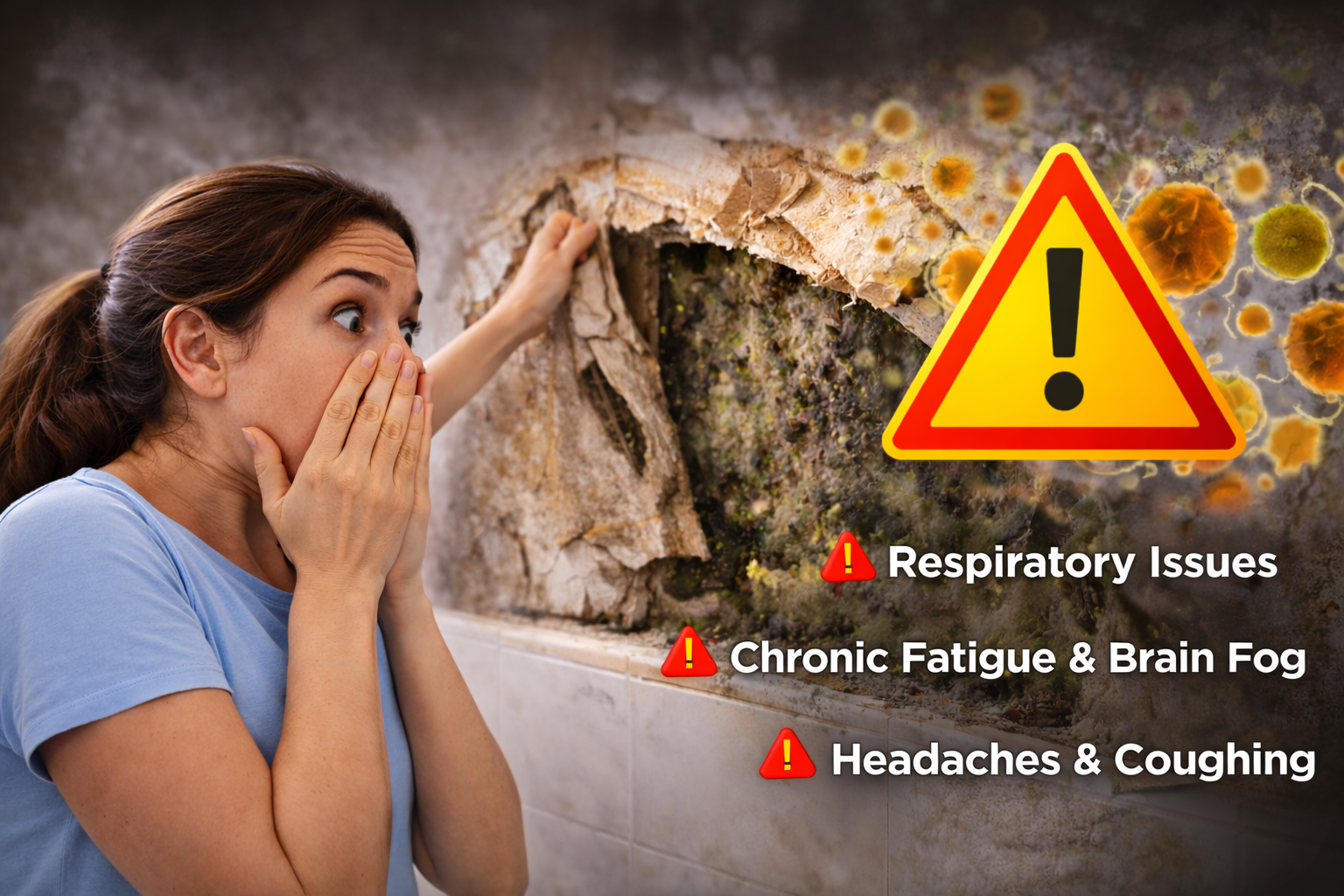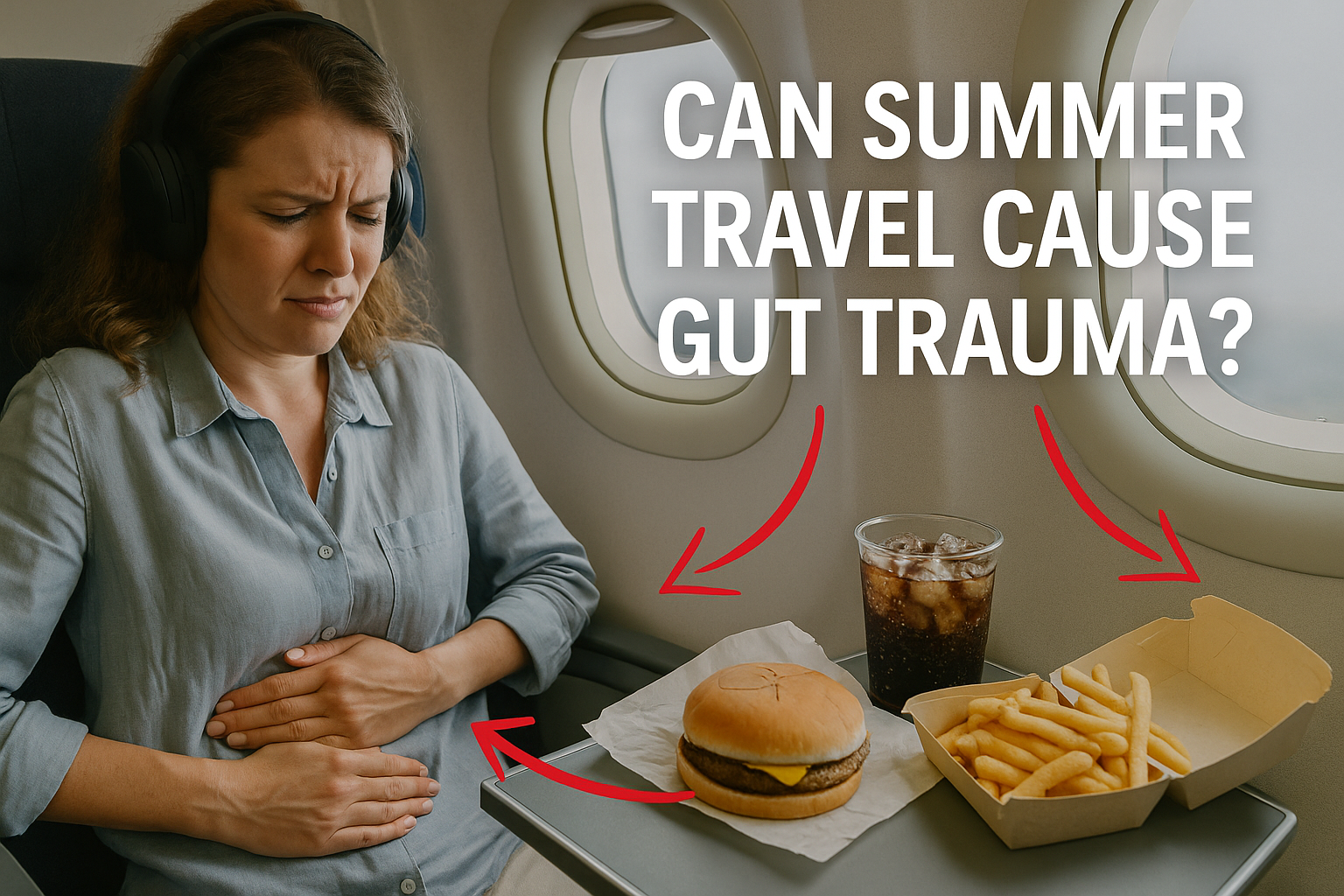
Travel Disrupts Your Digestive Rhythm. Flying, changing time zones, and even sleeping in a different bed can throw off your body’s internal clock, including your gut’s.
- Airplane air and low humidity lead to dehydration, which slows digestion.
- Jet lag and sleep disruption impact the gut-brain axis, triggering bloating, constipation, and cravings. One study published in PLoS ONE found that circadian misalignment alters intestinal microbiota and impairs gut barrier function [1].
Stress and Snacking Upset Your Microbiome. Travel-related stress (even the good kind) can raise cortisol levels, which affects gut motility and microbial diversity.
- High stress = poor digestion, gas, and mood swings.
- Airport food, hotel buffets, and sugary treats feed harmful gut bacteria and increase inflammation. According to research in Mammalian Genome, chronic stress leads to gut dysfunction and lowers resilience to illness [2].
Alcohol, Sugar & Processed Foods Slow Down Recovery. Summer indulgence often means more cocktails, desserts, and packaged snacks. While they’re fun in the moment, they can:
- Feed yeast and unfriendly bacteria
- Increase gut permeability (a.k.a. leaky gut)
- Decrease production of digestive enzymes. A study in Nutrients confirmed that poor diet and gut inflammation often go hand in hand, especially when combined with lack of sleep and hydration [3].
Signs Your Gut Needs a Reset:
- Bloating or cramping
- Irregular bowel movements
- New food sensitivities
- Fatigue or brain fog
- Skin breakouts
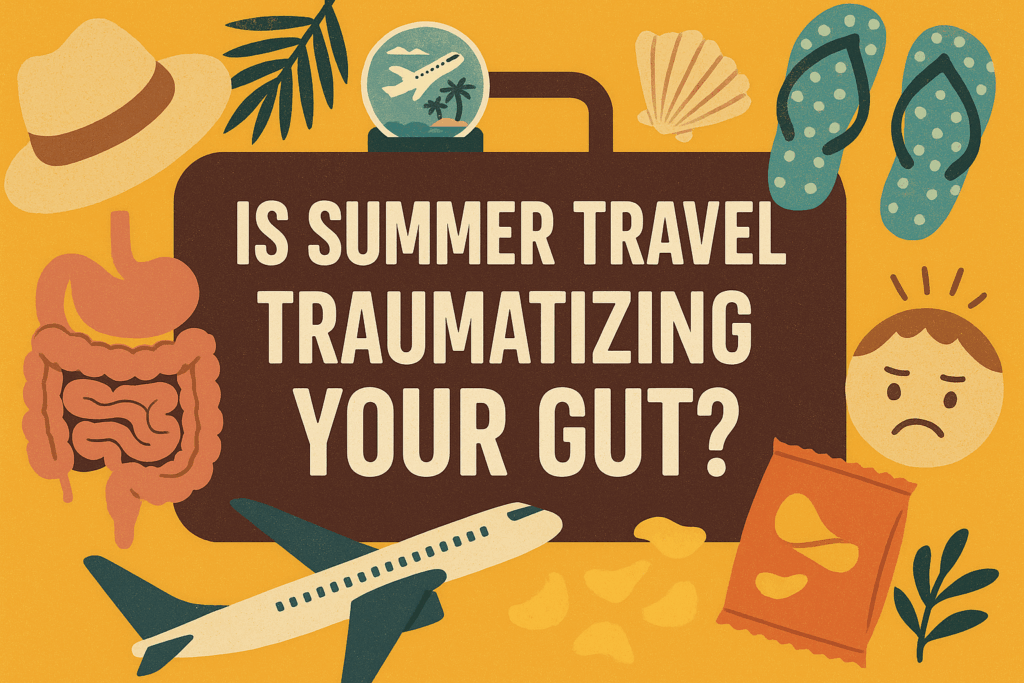
3 Ways to Gently Reset Your Gut After Traveling:
1. Rehydrate, But Go Beyond Just Water
Most people don’t realize that travel-related dehydration isn’t just about drinking more water. When you’re exposed to airplane air, heat, or alcohol, your body also loses essential minerals like magnesium, sodium, and potassium, electrolytes that keep your digestive muscles functioning properly.
To truly rehydrate:
- Add a pinch of sea salt and a squeeze of lemon to your water for a mineral boost.
- Sip coconut water or electrolyte powders that are free of artificial additives.
- Eat hydrating foods like cucumber, watermelon, and oranges, which offer water plus micronutrients. Rehydrating at the cellular level can help relieve constipation, reduce bloat, and support your body’s natural detox pathways.
2. Focus on Fiber + Fermented Foods for a Microbiome Reset
One of the biggest gut disruptions post-travel is the imbalance of good and bad bacteria. That’s where fiber and fermented foods come in: they feed and replenish your microbiome.
Here’s how to approach it:
- Load up on soluble fiber sources like oats, chia seeds, lentils, and cooked vegetables to help sweep out waste and soothe the gut lining.
- Add fermented foods like kefir, yogurt, kimchi, or sauerkraut to restore probiotic balance.
- Start slow if you’re bloated. Introduce these gradually to avoid overwhelming your system. Pairing fiber and probiotics is especially powerful because you’re not only adding good bacteria. You’re feeding them what they need to thrive.
3. Take a Digestive Break: Less Sugar, More Rhythm
After days (or weeks) of sugar, alcohol, and irregular meals, your digestive system needs time to recalibrate. That doesn’t mean a harsh detox. It means gently easing back into real, consistent nourishment.
Try this:
- Cut back on added sugars, refined carbs, and packaged snacks for 5 to 7 days.
- Create a 12-hour overnight eating window (e.g., finish dinner by 7pm, eat breakfast after 7am) to give your gut a full rest period.
- Focus on warm, easy-to-digest meals like soups, roasted veggies, and herbal teas. This short break allows your gut lining to heal, your cravings to reset, and your digestion to function more efficiently.
Balance Over Restriction
You don’t have to regret the indulgence, but you can support your body in recovering from it. Focus on hydration, real food, rest, and targeted gut support to get your digestion back on track naturally.
Your gut does a lot for you, even on vacation. A little care now can go a long way in helping you feel lighter, clearer, and more energised.
References:
- Voigt, R.M.; et al. Circadian disorganization alters intestinal microbiota. PLoS ONE 2014, 9(5): e97500. https://journals.plos.org/plosone/article?id=10.1371/journal.pone.0097500
- Moloney, R.D.; et al. The microbiome: stress, health and disease. Mamm Genome 2014, 25, 49–74. https://link.springer.com/article/10.1007/s00335-013-9488-5#citeas
- Liu, Y.; et al. Probiotics in Autoimmune and Inflammatory Disorders. Nutrients 2018, 10, 1537. https://www.mdpi.com/2072-6643/10/10/1537


